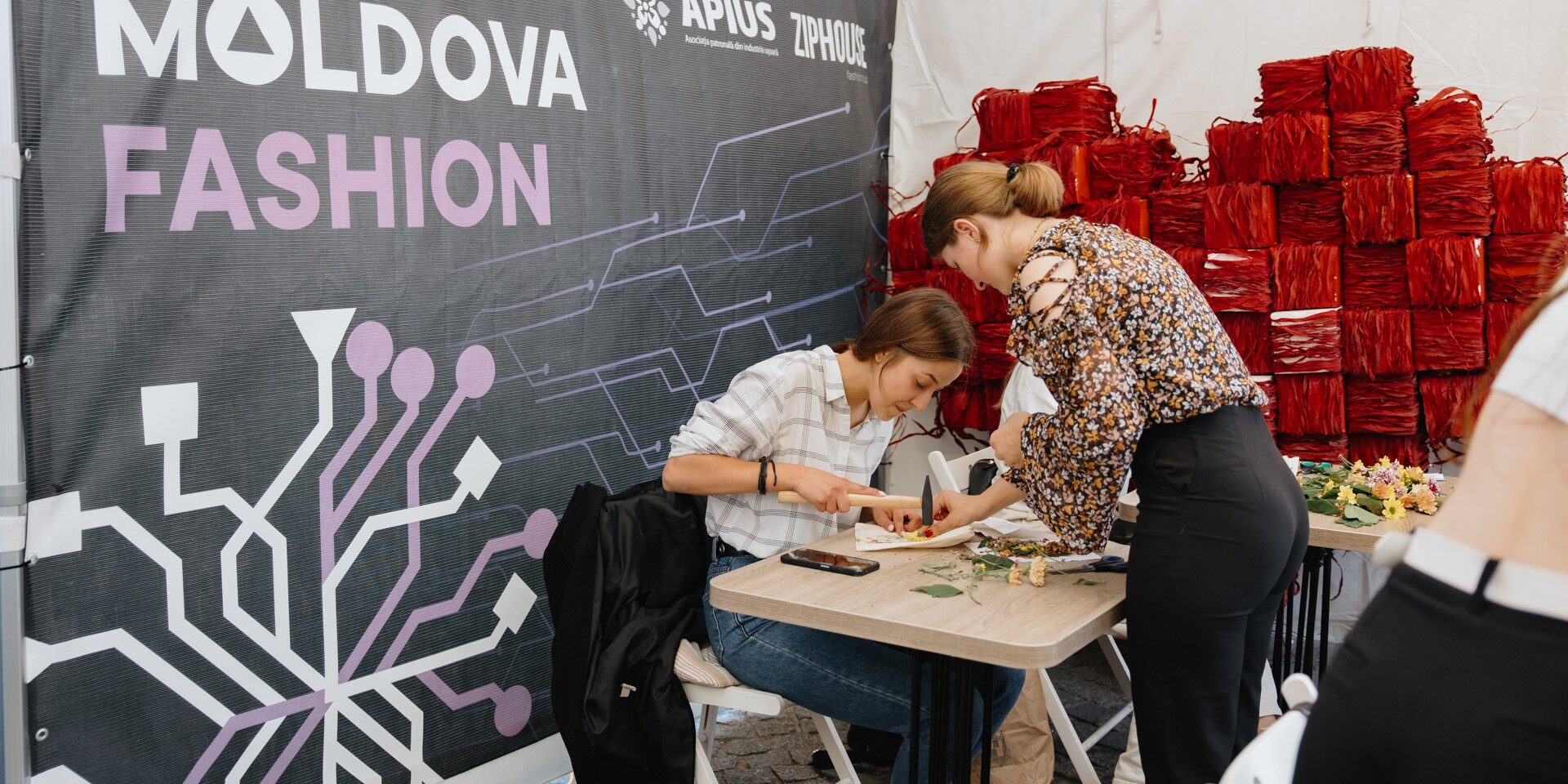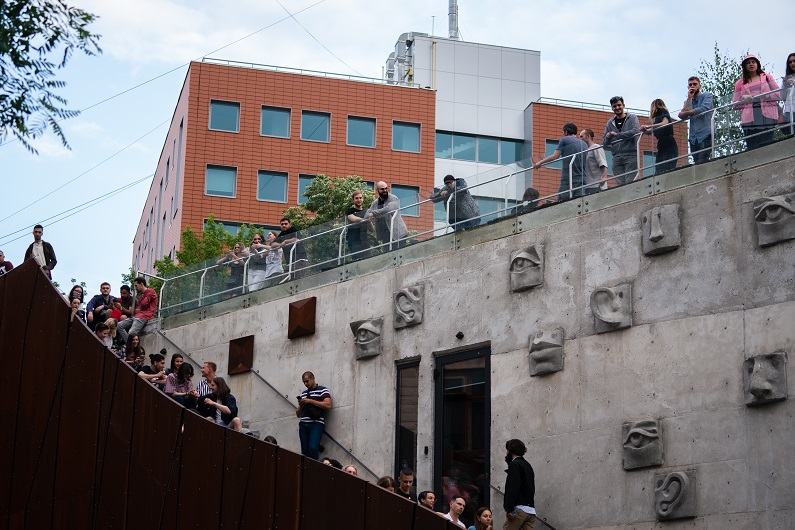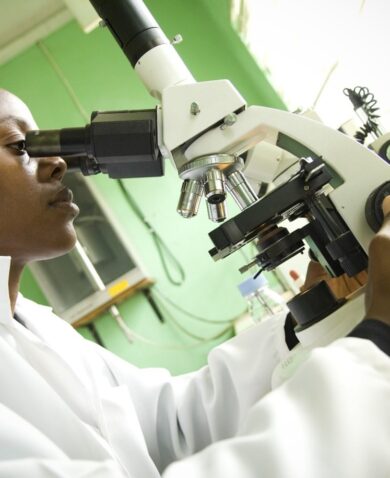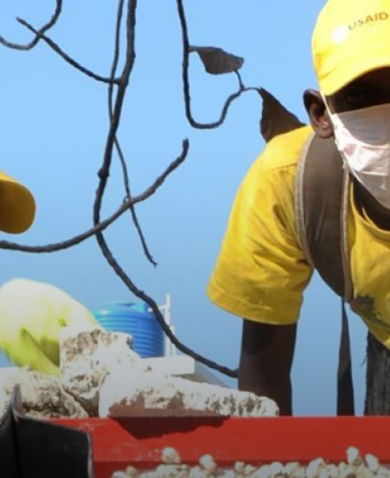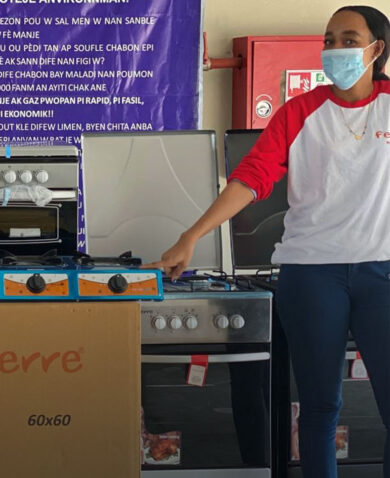Constanzia Yurashko, a fashion designer and graduate of the ZIPHouse Acceleration Program, exemplifies the kind of impact these centers can have. The ZIPHouse Fashion Hub is one of the longest running centers, launched in 2015 to rejuvenate the apparel, footwear, and fashion accessories industry, which is one of Moldova’s best-performing sectors and supports approximately 28,000 jobs, primarily for women.

Constanzia’s experience at ZIPHouse allowed her to successfully launch her own innovative, self-titled brand. Whereas once she may have left Moldova to seek success, today she feels confident that she can achieve her career goals in her birth country. Her perspective on slow fashion was enabled by FTA’s efforts to modernize the fashion sector, and while her innovative approach to business may come with some risks, she is confident that it is founded on a model proven to have long-term success.
“I don’t see sustainability as a challenge,” Constanzia says. “When I launched my own brand, I decided to focus on product quality. The apparel I create has a longer shelf life, beyond one season. I often use cotton, linen, and wool, dyed with natural substances, including berries or fruits. I work with fabric factories across Switzerland, the United Kingdom, Portugal, and Italy. We have an all-local production workshop and 50% of the process is by hand.”
The success of ZIPHouse has paved the way for many other such innovation centers across a wide range of industries. Mediacor Digital Media Center, launched in 2021, has built on lessons learned from ZIPHouse. The center offers cutting-edge digital production spaces, pre- and post-production facilities, and training and co-working facilities. It provides young Moldovans with improved opportunities to find success in a global industry that is anticipated to be valued at more than $400 billion by 2025.
In addition, Mediacor offers Moldova an opportunity to become a global hotspot for creative and media services. It is currently incubating 15 media startups and supported the launch of three exciting new Bachelor of Arts programs focusing on new media, animation, and game design at the Technical University of Moldova, Moldova State University, and the Pedagogical University. While the program’s goal was to solicit 150 applications for fall 2022 admission, it received 400 applicants and currently has 274 students enrolled. By creating a bright future for Moldova’s creative sector, these new programs encourage young people to keep their skills and talents in the country.
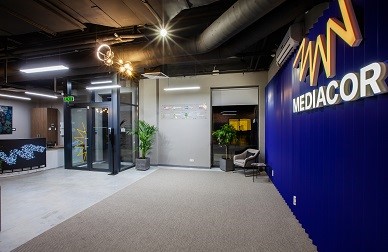
The impact of the FTA centers has been substantial. Since program inception in 2015, 180 teams and startups and more than 110 small- and medium-sized enterprises have benefited from acceleration programs in technology, fashion, and digital business. Over 24,000 young people and professionals have developed in-demand technical skills in coding, cybersecurity, “internet of things” technology, electronics, fashion patternmaking, design, and robotics. Between June 2021 and September 2022, FTA and its partners successfully launched 34 courses and assisted 145 private sector firms to improve technologies, efficiency, and management practices. The project found that 82% of 2,458 participants who joined workforce development programs had better employment opportunities. In addition, assisted businesses overwhelmingly indicated that their sales values increased over the reporting period.
With the 2022 launch of the eighth innovation center, Nortek, in northern Moldova, program benefits are now spreading beyond the country’s capital. FTA and its partners will continue this critical work over the coming years, creating further opportunities for young Moldovans and local industries.
Banner image caption: Two women practice their design skills in the ZIPHouse Fashion Hub, one of the longest running innovation centers. Credit: Moldova Future Technologies Activity.

